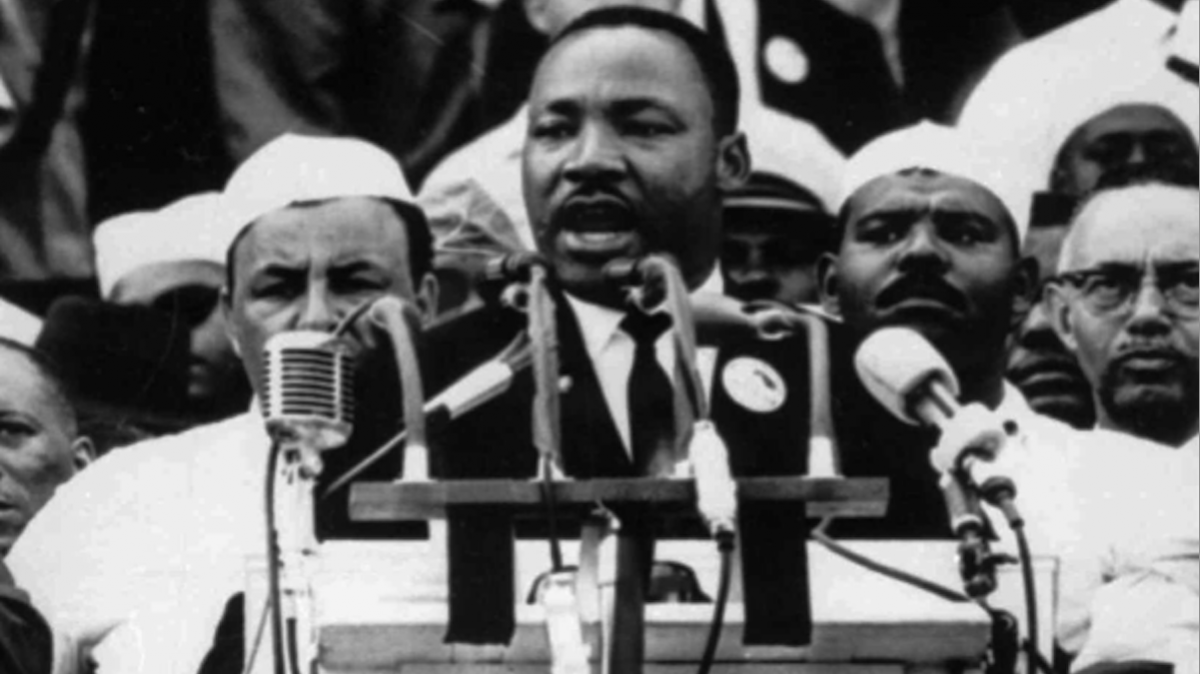King’s legacy is more than pretty words

King believed in what was possible, and then he moved to make the possible into the tangible. (File art)
I’m not sure if Americans truly understand Martin Luther King, Jr.’s significance. King was more than a dreamer who gave voice to the hopes of a people. He was a man who put feet to his faith.
He believed, even before our leaders thought it possible, that America could live up to its creed: That all men are created equal.
He believed, even before his countrymen were ready to admit it, that hypocrisy could no longer hold sway.
He believed, even as so-called liberals twisted themselves into ideological knots, that the North’s denial of opportunity was as damaging as the South’s Jim Crow.
Going beyond words and thoughts
King went further than believing, however.
He put feet to his faith, and if faith is indeed the substance of things hoped for, and the evidence of things not seen, then King’s actions were built on faith.
For a man who saw systemic racism lend permanence to poverty, it took faith to believe advancement was possible. In a day when voting could be a death sentence for Southern blacks, it took faith to believe political empowerment was attainable.
King not only believed those things. He marched for those things, spoke on those things, was jailed for those things and died for these things.
King believed in what was possible, and then he moved to make the possible into the tangible. He not only moved himself. He moved his people. He moved the needle. He moved a nation.
That’s why it galls me when the holiday we fought decades to obtain is treated as if it doesn’t matter.
An important day
On the contrary, King’s holiday is a celebration of a man who put feet to his faith, and challenged others to do the same.
When a group of white clergymen sat in the comfort of their offices and called King an agitator for marching in Birmingham, Ala., King rebuked them from the cold environs of a jail cell.
“Never again can we afford to live with the narrow, provincial ‘outside agitator’ idea,” King wrote. “Anyone who lives inside the United States can never be considered an outsider anywhere within its bounds.”
King, you see, was not a man who was willing to wait for change. Instead, he was a man who was aching to make change. Not just for himself, but also for his children and for the children of future generations.
Thanks to King’s sacrifice, we’ve advanced, but not nearly enough, because in a capitalistic society, progress is measured in capital. King knew this. That’s why he wrote of seeing “the vast majority of … twenty million Negro brothers smothering in an airtight cage of poverty in the midst of an affluent society.”
That portion of King’s “Letter From A Birmingham Jail” is ironic, because while the numbers have decreased over the years, poverty still reigns for far too many blacks.
Poverty’s lingering impact
In Philadelphia, the majority of the 28 percent who live in poverty are black. According to the 2010 census, more than 27 percent of blacks across the nation live in poverty. In short, we’ve still got work to do, but make no mistake, we’ve achieved even beyond King’s dream, and much of that progress took place because King put feet to his faith.
I wouldn’t have the opportunities I do without King.
That’s why I’ll spend his holiday working to change the conditions that have kept too many of my people in poverty.
I’ll be working to honor a man who sat in jail rather than sit in oppression.
I’ll be working to develop the kind of character that kept King from taking vengeance, and working to remember the man who gave his life so I could write of his memory.
Martin Luther King, Jr., is one of the greatest examples of character in American history. We’d do well to remember his actions as we approach the King holiday.
Far too often, we’ve reduced his memory to pretty words.
WHYY is your source for fact-based, in-depth journalism and information. As a nonprofit organization, we rely on financial support from readers like you. Please give today.


